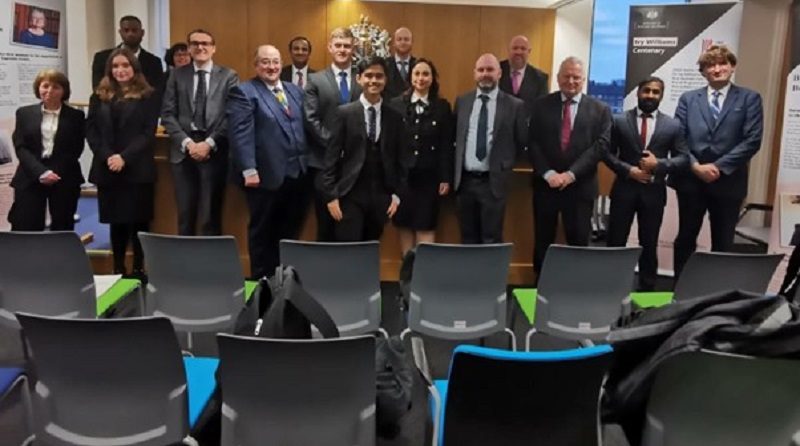Matthew Todd Judges National Speed Mooting Final

The 2024 National Speed Mooting Competition was held at Liverpool John Moores University on Saturday 16th of March, allowing participants to obtain constructive feedback and gain valuable experience to aid entry into legal professions.
Mooting is very much like a mock trial. Two contestants are asked to argue opposing sides on a point of law in front of a ‘Judge’ who then provides constructive feedback, decides who wins, and progresses to the next stage of the competition.
Speed mooting involves less preparation than a standard moot. Competitors are given less preparation time and a shorter window in which to speak, arguing their side on the chosen point of law.
We caught up with Kenworthy’s Chambers’ Employment Law Barrister Matthew Todd, who volunteered as a Judge, to find out how The 2024 National Speed Mooting Finals went.
Hi Matthew, thanks for speaking with us having just returned from judging the 2024 National Speed Mooting Finals! How did you find the experience?
I very much enjoyed the experience overall. It was nice to be on the other side of the bench for a change!
For me it is great to see talented young Advocates from across the country. Participants travelled from as far afield as Portsmouth to compete - a long train journey home if eliminated early!
Hopefully, my feedback helped them in their journey towards a career in law.
How was the competition formatted?
The National Speed Mooting Finals is a knockout-style mooting competition.
Moots consist of two competitors pitted against each other with each allowed seven minutes to make their arguments. The Judges choose who wins and the winner progresses to the next round, with the other competitor eliminated from the competition.
This knockout format continues until only two competitors remain for the final at the end of the day.
What was your role?
I volunteered as a Judge, and so was judging all the rounds as part of a two-person judging panel.
Our job was to listen to the arguments made and determine who should move on to the next round.
So, how did you judge the competition?
We ranked the competitors on five criteria.
- Courtroom etiquette
- Clarity of presentation
- Ability to develop arguments
- Use of legal authorities
- Ability to deal with judicial intervention
We were told to ask each competitor one question which they had to answer during their submissions. This was done to reflect the real courtroom, where Judges rarely sit quietly and listen to your submissions without intervention!
What was mooted?
The subject of the moot was a classic contract law scenario where a contract between a builder and customer was varied, with consideration given partially in the form of a bottle of whiskey.
I would describe it as a well-balanced scenario designed to give each side strengths and weaknesses in their case. To my mind, the best performers were the ones who didn't shy away from the weaknesses in their case but dealt with them as best they could.
What are the benefits of speed mooting?
It is nice helping those who want to join the profession gain valuable experience, I hope that the constructive feedback I gave as a Judge might give them a leg up in a future application or interview.
I think the benefits of judging moots for legal professionals are that it helps to get the 'view from the bench'. You can easily forget how the Judge has to see a case when you're wrapped up in one side or another, and it helps to put yourself in their shoes in some small way.
Thanks to Matthew Todd for speaking with us about his experience judging the National Speed Mooting Competition.
To check the availability of Barrister Matthew Todd for your Employment Law case call our Employment Clerk Ella Edwards on 0161 832 4036, email [email protected], or fill out our contact form.
